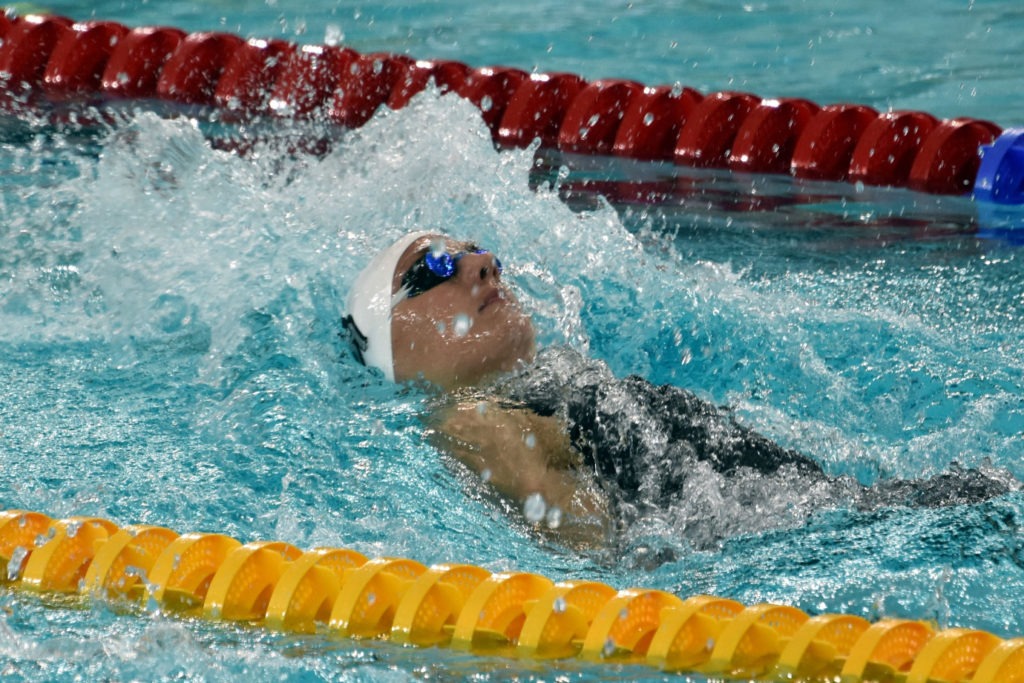Football’s world governing body FIFA and World Athletics will move to review their transgender policies in the wake of swimming’s ban of transgender athletes in elite women’s events.
Swimming’s world governing body, FINA, announced this week that trans women will not be eligible to compete in women’s competitions, unless they completed their transition before the age of 12, or before they reached stage two on the puberty Tanner Scale.
FINA has also said it will create a working group to establish an “open” category in some events. The new policy was passed with 71 per cent of the vote among its members.
“We have to protect the rights of our athletes to compete, but we also have to protect competitive fairness at our events, especially the women’s category at FINA competitions,” FINA President, Husain Al-Musallam, said.
The controversial decision has sparked heavy criticism from trans rights advocates and some prominent sporting figures. But global football body FIFA and World Athletics have backed in the move, and confirmed they are looking to review their own policies when it comes to transgender athletes.
Sebastian Coe, president of World Athletics, praised swimming for its policy, and said his responsibility was “to protect the integrity of women’s sport”.
“We see an international federation asserting its primacy in setting rules, regulations and policies that are in the best interest of its sport,” Coe told the BBC.
“This is as it should be. We have always believed that biology trumps gender, and we will continue to review our regulations in line with this.”
Meanwhile, a spokesperson for FIFA confirmed football was reviewing its policies.
“FIFA is currently reviewing its gender eligibility regulations in consultation with expert stakeholders,” said the spokesperson. “Due to the ongoing nature of the process, FIFA is not in a position to comment on specifics of proposed amendments to the existing regulations.”
Australian swimmer Cate Campbell offered her support to FINA’s ban of transgender athletes when she addressed the world swimming body.
“To create a place that is inclusive, is to create a space that is fair. Transgender, gender-diverse and non-binary athletes’ inclusion in the female category of elite sport, is one of the few occasions where these two principles come into conflict,” Campbell said in a speech to FINA.
“We see you, value you, and accept you. My role, however, is also to stand up here, having asked our world governing body, FINA, to investigate, deliberate and uphold the cornerstone of fairness in elite women’s competition.
“And it pains me — that this part of my role — may injure, infuriate and, potentially, alienate people from an already marginalised [transgender] community.”
The ban of trans women competing in elite women’s swimming comes in the wake of transgender athlete Lia Thomas’ historic win of a National Collegiate Athletic Association swimming title in the United States last year.
Speaking to RN Breakfast radio on Tuesday morning, Nikki Dryden, a former Olympic swimmer and human rights lawyer, said the whole basis of the transgender ban in women’s swimming was “totally flawed”.
“The whole basis and this rhetoric of science is actually totally flawed and underpinning this entire policy is this assumed gender bias, that FINA now believes that all transgender women and all intersex women are actually men, and they are always going to be men in the eyes of FINA,” Dryden said.
“I was never trained to care about the person in the next lane and whether or not they were competing fairly. We were trained to swim in our own lane and do the best that we could do.
“This policing of all women’s bodies, in order to stop really just one swimmer, it doesn’t stand up when you start looking at it in more detail.”
Dryden said that the ban is not actually about protecting women’s sport, noting she thought it was a form of discrimination against all women.
“As a lawyer, if Lia Thomas is listening…call me. I’d love to take this to court, all the way up to the court of arbitration for sport,” Dryden said.
“There is no way this could stand up internationally under human rights rules and universal principles of human rights. But this won’t stand up in a lot of domestic courts as well. Australia, Canada, we all have human rights and anti-discrimination legislation and I don’t see how this is going to pass.”


